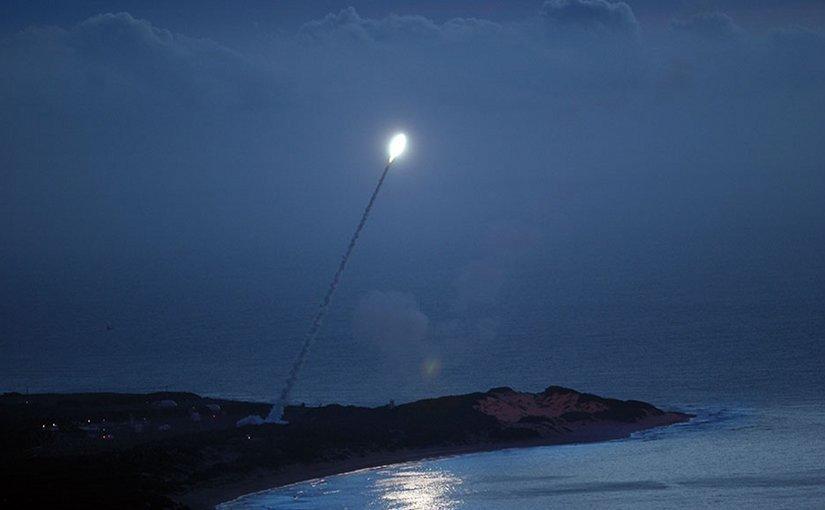Pentagon officials announced plans this week to move forward with flight tests of two medium to long range missile types previously banned under the Reagan era Intermediate-Range Nuclear Forces Treaty (INF) which both Washington and Moscow recently declared they have effectively pulled out of. The tests of the long-banned ground-launched cruise missiles would mark an ultimate point of no return for the fast faltering landmark 1987 treaty.
The tests are expected to begin in August, the point at which the US and Russia agree the INF is set to finally terminate, which would be the death knell of the over three decade treaty which successfully kept missile build up out of Europe at the tail end of the Cold War and after.

The Associated Press related the following details based on a Pentagon press briefing:
The officials, who spoke to a small group of reporters under Pentagon ground rules that did not permit use of their names or titles, said one project is a low-flying cruise missile with a potential range of about 1,000 kilometers; the other would be a ballistic missile with a range of roughly 3,000 to 4,000 kilometers. Neither would be nuclear armed, the officials said.
The defense officials specified that neither missile would be nuclear armed, though the tests would constitute a clear violation of INF terms, which banned ground-launched missiles within a 500 km to 5,500 km.
One Pentagon spokesman told the AP that one of the flight-tested missiles could be ready for deployment within as soon as 18 months, while the longer range missile could take five years or more to be combat ready.
However, the defense officials told the press briefing that the Pentagon is operating under the assumption that the INF treaty could still be rescued. Per the AP:
If Russia and the U.S. were to reach a deal to rescue the INF treaty before August, these projects would not go forward.
At this point event as both Moscow and Russia saber rattle concerning their post-INF intentions, each side appears ready to admit some small degree of room for a last minute salvage based on concessions. But so far neither side has blinked.
Last month, Russian Foreign Minister Sergei Lavrov insisted that Moscow “attempted to do everything we could to rescue the treaty” while President Putin also underscored concerning any future US plans for missile tests and development, “ours will be a mirror response” in a tit-for-tat move that Moscow ultimately blames on Washington’s years-long “systematic” undermining of the agreement.
Also this week CNN reported separate Pentagon statements which confirmed the planned August and November missile tests would be “inconsistent with our obligations under the Treaty.”
But the spokesperson also confirmed, “This research and development is designed to be reversible, should Russia return to full and verifiable compliance before we withdraw from the Treaty in August 2019.”
Meanwhile European leaders have been generally reluctant to abandon the deal altogether, even while being in agreement with the US position that Russia has violated the treaty for years. In the past NATO has credited the INF with ensuring 30 years of peace by preventing and ultimately ending the proliferation of ground-launched intermediate-range nuclear missiles.
US officials, including National Security Adviser John Bolton, have argued that the treaty is outdated and doesn’t account for China or North Korea as rising technologically advanced threats — something which Secretary of State Mike Pompeo has also made a theme and emphasis in discussion the INF.
via ZeroHedge News https://ift.tt/2TOFias Tyler Durden